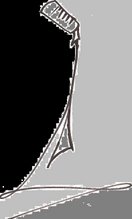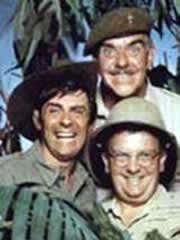
 There aren’t many actors around in the world that leave you with a warm feeling inside and a fixed gaze upon the character portrayed. In amongst the Golden years of cinema, there was such an actor who was known around the studios, rehearsal rooms and coffee bars alleyways in Los Angeles as Mr Nice Guy.
There aren’t many actors around in the world that leave you with a warm feeling inside and a fixed gaze upon the character portrayed. In amongst the Golden years of cinema, there was such an actor who was known around the studios, rehearsal rooms and coffee bars alleyways in Los Angeles as Mr Nice Guy.
He once said that ‘the worst part about being me is when people want me to make them laugh..’ Well, if he had had any idea as to the dent he left behind in the way comedy was focused upon in films and how his humour melted into a pure second nature to him, then I think he would have shrugged it off in his natural modest fashion, wondering what the fuss was all about.
Born John Uheler Lemmon III on February 1925, he began life in one of the most closeted and confined spaces ever created by man. From between floors in a hospital lift, he came into the world and was destined not to follow the flour footsteps of his father, head of a doughnut company, but to achieve one of the most extensive, award winning careers in the second most confined and closeted spaces know to man. Hollywood.
He did, however, become the president of the Harvard Hasty Pudding Club - make of that what you will, but even so, his father was not in the least bit delighted on discovering that his son wanted to become an actor, but agreed to support him as long as he had the drive to do it. Jack never lost his drive. He was quoted to have said, ‘..I won’t quite until I get run over by a truck, a producer or a critic…’ Fortunately, none of these three things ever happened.
One thing that has drawn me to write a brief account of the life of one of my all time favourite comedy actors is it has recently occurred to me that since the days of Lemmon and fellow comic innovators Walter Matthau, Danny Kaye and Jerry Lewis, that something has gone dreadfully wrong in the World of comic genius. Okay so we now rely heavily on visual humour in the form of Jim Carey because all of the best jokes have been done, but what has happened to the legacy that these great men left behind when we are subjected to another poorly produced piece of film that shows one muddling gag after another in some faded rendition of an eighties teen flick that now comes in the over weight form of Jack Black. I ask, do ‘teens’ actually find this stuff inspiring and imaginative? I doubt it, and if so, then why aren’t we educating them in the language and understanding of the definition of the words, ‘comic talent?’ I guess a generation of movie maniacs over a certain age (me included) will probably never know. Back to the plot…
Climbing his way steadily through the minor movie star ranks, he found no effort in playing shy, naïve young men who fumble their way through life - paranoid, panic stricken characters who believe the world is a bad and uncompromising place, as well as, characters trying to create some good out of a bad situation from via one rollercoaster after another, frantically trying to accommodated himself with the world around him. These ‘hide behind hand’ type roles came instinctively to Lemmon and unwittingly, was one of the first actors, in that sense to be type cast. Either way, he somehow played himself or at least, he became the character in real life, whether he liked it or not. He said that he was ‘..particularly susceptible to the parts..’ he played. Perhaps on discovering that he once had a drink problem, we begin to wonder film and character he played managed to trigger alcoholism off. He admitted, years later that it was his moving portrayal of a middle aged man experiencing a breakdown in his 1973 film ‘Save The Tiger,’ that was his therapy and a crucial turning point in his life. It was this film that won him his first Academy Award for Best Actor.
Despite being a candidate for AA and a first marriage lasting only six years, he accumulated more awards and nominations over nearly a thirty year period than any other comedy actor of his generation. Perhaps the nominations that stand above the rest even today where for Best Actor in the 1959 film, ‘Some Like It Hot,’ starring Tony Curtis and Marilyn Monroe, where upon after heavy friction during filming where Curtis had compared kissing Monroe to kissing Hitler, it was Lemmon that took the frail Monroe under his wing. This mad cap blast of all girl Jazz band meets two musicians on the run after accidentally witnessing the St Valentine’s Day Massacre was made more delightfully bubbly through black and white film and Billy Wilder’s cheeky, yet sweetly irresistible, subtle humour. It was a film that marked a catapult of Lemmon’s career into the great unknown and genius Wilder moments followed in which grew a beautiful relationship of respect and admiralty between actor and director. Another nomination followed in quick pursuit from Lemmon’s shy, bachelor appearance along side a unknown bright eyed, Shirley MacLaine in the 1960 film, ‘The Apartment.’ Again, Lemmon, appearing to play himself, a home loving, boss pleasing, innocent figure in a complicated entwinement of comic foul play.
Both films regarded as legendary bench marks in the expansive career’s of Lemmon and Wilder. No other comedy partnership has there been to stick firm in the mind than Matthau and Lemmon. Within their ten films together, they inspired farcical, genius timing that was second to none. Taking the U.S comedy hit show by Neil Simon, ’The Odd Couple,’ to the movie screens in 1968, it was surprisingly, Tony Randall from the TV series who was set to play Felix Unger. Lemmon took the part and made it his own. A further rendition followed and a somewhat mediocre flop as ‘The Odd Couple II’ in 1998
Not only has Jack Lemmon’s career been a complete full circle of diversity spanning over four decades, his world had consisted of serious moments of equal depth and quality. The already mentioned, ‘Save The Tiger,’ was a definitive performance of the serious, deeper side of Lemmon. Proving again in 1982’s ‘Missing,’ that he was more than just an attractive face with a winning smile, he played the painfully difficult role of a parent fighting for his missing child to be found. Both winning him the Cannes Best Actor award.
Tipping the scales ever so slightly towards the end of his career, he engaged in other talents both fruitful and not so fruitful. He dabbled in a spot of directing in 1971’s ‘Kotch,’ and if only his golfing skills had been the same as his contemporaries; Bing Crosby perhaps to name only one, then he would have set another string to his bow, but after a staggering thirty three years on the course, he failed to make any grade. Thankfully, he didn’t leave us without hurtling in our direction a few more movies that showed us that the aging Lemmon was just a fine actor and a comedy God to be reckoned with when he pulled out a side splitting short series of ‘Grumpy Old Men Films,’ (1993, 1995) with fellow aging master and life long friend Walter Matthau. They here have certainly shown that something improve with age, not just wine. ‘My Fellow Americans,’ was another jails back to the days of sparkling Lemmon when he played one of ex-presidents along with another wonderful name, James Garner in 1996.
This charismatic, gentle actor who portrayed the very funniest of characters to the deepest and emotional of roles with equal quantity and feeling and a ‘reach out an touch’ realism quietly caught the last bus home, hung up his smile and put away his star humour for the last time on the 27 June 2001 at the age of 76. After fighting a silent, private, two year battle against bladder cancer, he will remembered for every beautifully delivered line he spoke captured on celluloid. It was widely reported that before every take, he would whisper, ‘it’s magic time,’ as if tuning into some magical wavelength. He truly loved his art and this shone through brightly and is still there today and just as fresh as the day it was filmed. With his tombstone reading quite simply, ‘Jack Lemmon In..’ it is a perfect, most fitting epitaph to a man who lived a life of a true Hollywood star, dignified and incredibly enviable.
If anything other than a glittering away of classic films, he left us with one legacy of his own, he wrote, ‘It’s hard enough to write a good drama, it’s much harder to write a good comedy, and it’s hardest of all to write a drama with comedy. Which is what life is…’
To the only Hollywood star of great wealth and fame to refuse a chauffeur to and from the studio but preferred to take the bus with a paper under his arm, he was, amongst a showcase of humanoid, celluloid figures we call stars, just a ordinary person, just like the rest of us…
Films to watch;
‘Mister Roberts’ 1955
‘Some Like It Hot’ 1959
‘The Apartment’ 1960
‘The Odd Couple’ 1968
‘Save The Tiger’ 1973
‘Missing’ 1982
‘12 Angry Men’ 1997
©M. Duffy (sam1942) 2006
Friday, March 02, 2007
Scenes From An Elevator....
Posted by
Michelle Duffy
at
Friday, March 02, 2007
![]()
Subscribe to:
Post Comments (Atom)




No comments:
Post a Comment